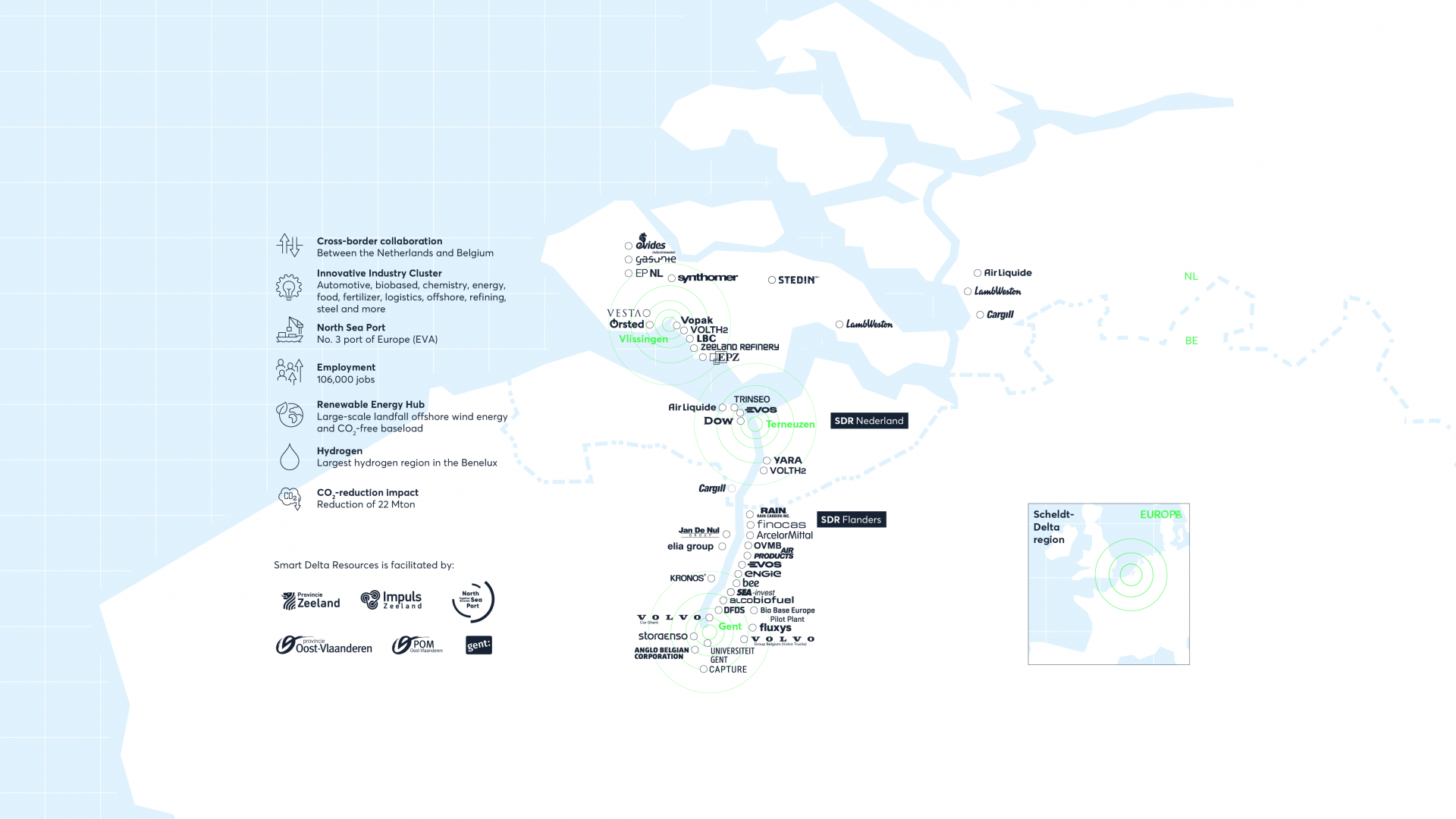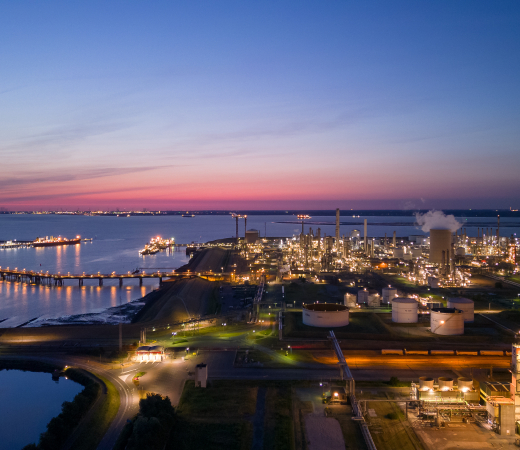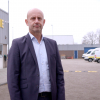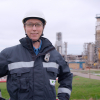Our partnership: two countries, one goal
Smart Delta Resources has a Dutch organisation (SDR NL) and a Belgian organisation (SDR Flanders) that both work together on cross-border solutions for a future-proof, sustainable industry in the Flemish-Dutch Scheldt Delta region. SDR Flanders and SDR Netherlands collaborate wherever possible and operate separately wherever necessary, always in line with the policy context on both sides of the border.
Our region and mission
The Scheldt Delta region is one of the largest industrial areas in Europe. The region extends from Bergen op Zoom to the port area of North Sea Port with Vlissingen, Terneuzen and the Canal Zone to Ghent. The companies in this region are indispensable for our economy, but also have a significant impact on people, nature and the environment. And that is where our mission lies: in solutions that make the industry more competitive, future-proof and sustainable.
More specifically, we are working towards a competitive, climate-neutral and circular industry in the Scheldt Delta region in 2050. Because such an ambitious objective requires intensive cooperation, various parties joined forces: companies, the port, knowledge institutions, governments and grid operators. The result: Smart Delta Resources.
Our strength: collaboration
Our strength lies in that cooperation. Because our goal is to help and strengthen each other. To make efficient and shared use of our raw materials and energy sources in the Scheldt Delta region. And to make a positive impact on people, nature, the environment and the economy.
What our partners are saying




